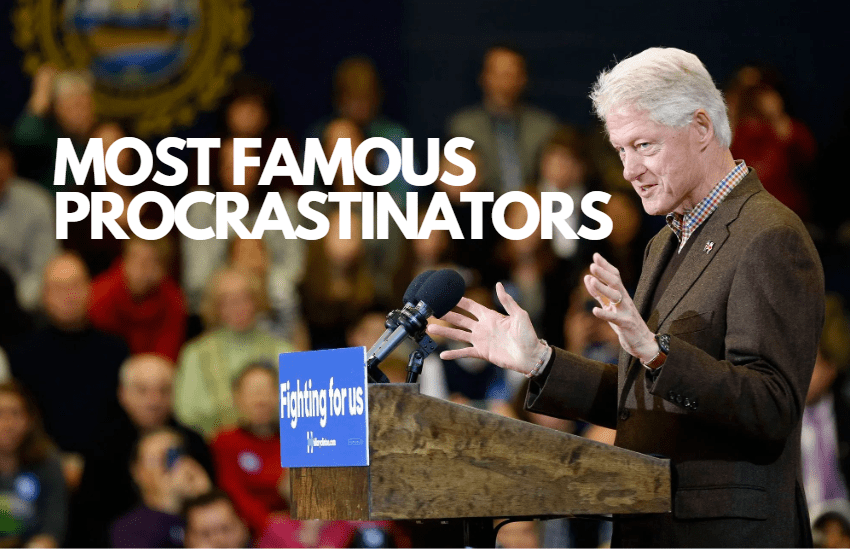We all know what procrastination is. It is the act of delaying or postponing a task by doing other things or distracting ourselves. Often, we procrastinate on tasks that are overwhelming, too complex, or simply boring. But what is the opposite of procrastination and is it any better than this?
Below, we’ve gone into detail about the opposite of procrastination; precrastination. We’ll discuss what this procrastinate antonym means and how it differs from procrastination. Find out more below.
What is the Opposite of Procrastination Called?
The opposite of procrastination is called precrastination. It is the act of doing things too quickly simply to get them done. It has been observed in studies where participants will complete a task to get it done as quickly as possible, even if the method they choose uses more energy.
In an effort to complete a task to get it out the way, people who precrastinate often use ineffective methods and don’t consider the quality of the outcome.
While procrastination is about putting off a task, precrastination is the opposite of this. Both strategies are considered maladaptive (they lead to negative outcomes). Procrastination leads to doing something too late and rushing it, whereas precrastination is doing something too early and rushing it. In both cases, the task gets completed but is done in an ineffective or mediocre way.
Is Precrastination Better than Procrastination?
Precrastination is the opposite of procrastination and can sometimes feel like it’s the better option. After all, you get the task completed by the deadline and you feel better about it. However, procrastination stems from your brain valuing the short-term reward, and precrastination is just the same. This is how:
It can seem like precrastination is the right thing to do; rather than putting something off, you can just rush it and get it done quickly. This gives you the immediate reward of having completed the task and not having to think about it anymore, but what have you sacrificed in the process?
If you’ve completed a task quickly and rushed through it using the easiest method possible, the chances are it’s not your best work and that is going to be reflected in the outcome.
So, while you do get the task done ‘on time’ you’ve got to question whether it is worth ‘just getting it done’ or if, perhaps, you need to find a middle ground between precrastination and procrastination to get the best possible results.
Why is Precrastination as Bad as Procrastination?
If precrastination is the opposite of procrastination, what are the actual dangers of doing it? We’ve briefly summarized them below so you can get an idea of what you’re risking when you precrastinate.
- You make worse decisions because they’re rushed and you haven’t considered all available options
- You perform worse than you would if you were to take your time over a task
- You’re not working as efficiently as you could. If you’re rushing a task, you will do the easiest possible thing, but this isn’t always the most effective
- It is flawed prioritization because you’re just trying to get it done. It would likely be better for you to complete the most important task first instead of expending your energy rushing through everything at once just to get it completed
- It can lead to poorer mental health in the long run. As precrastination is borne from the anxiety to get things completed, if those tasks then come back with alterations needed or poorer grades than you would like, you’re going to feel guilty for having rushed them and not performing at your best. This leads to poorer mental health and self-esteem, and ultimately, more anxiety
5 Tips on How to Overcome Precrastination
So, how do you stop precrastinating? It likely feels like you’re stuck between a rock and a hard place, in between procrastinating and procrastinating, but there are ways that you can find a happy medium between them.
1. Get Your Priorities Clear
One of the main reasons people both pre and procrastinate is that they don’t know which tasks are the most important. If you sort the most important tasks from the least important tasks, you will know which requires the most energy.
It’s best to plan out your day so that you can complete the most important tasks when you’re at your peak. If you work best in the early afternoon, block off the time in the morning to get lower-value tasks out of the way so your mind is clear for the most important task.
By blocking off time and ensuring you’re giving the requisite amount of time and energy to each task, you’re more likely to be effective and produce high-quality results.
2. Question Your Choice to Start Early
If you find you’ve suddenly got free time to start your task early, that’s great but you should still question whether you’re starting early to simply get it done. Is it best for you to start right now? Or, would you benefit from having a quick break and diving in when you planned to so you’re at your absolute best?
If you’ve got the time and you want to get started to give yourself more time to focus, then starting early isn’t a bad idea. If you know you’re just doing it to get the task out of the way, then perhaps take a step back, slow down, and take your time before starting.
3. Structure the Task
If you break the task down and set out a manageable timeline for each step of the project, then you are less likely to rush the whole thing just to get it finished. You can see the progress and which steps you need to take each day. It makes the whole thing less overwhelming.
This strategy also ensures you feel rewarded throughout. Each time you complete a task, you get a small reward and will be more motivated to continue at the pace you’re at.
4. Find Alternatives to Focus On
If you’re prone to completing tasks immediately so they don’t hang over your head, then you should find ways to take your mind off it. Instead of trying to do nothing and overthinking the task at hand, get through other tasks that need completing.
While this might sound like procrastinating the task – indeed, you are actually looking for a way to distract yourself – if you’re prone to rushing work then the time to think will be beneficial to you.
5. Try a Dedicated App
Virtue Map is an anti-procrastination app that is designed to help you develop healthy habits to achieve your goals. If precrastination is your problem, you can use the app to structure your time and complete small tasks throughout the day to achieve your goals in a controlled way.
The app consolidates the psychology behind why we put things off and neuroscientific research to help you to identify your triggers. You can use the app for academic work, homework, and even smaller tasks, like household chores.
While precrastination is the opposite of procrastination, it is caused by very similar thought patterns and triggers. The Virtue Map app can help you to identify and resolve these.
Conclusion
The opposite of procrastination is precrastination, and while getting your tasks done quickly can seem like the best idea, it isn’t always. In fact, if you spend less time on a task just to get it done, you run the risk of rushing it, leaving you with a mediocre result.
Precrastination and procrastination stem from similar patterns of behavior and favor short-term rewards over long-term goals. Our steps for overcoming precrastination can help you to avoid this.
For more information, check out the Virtue Map app now.




